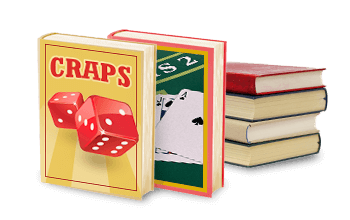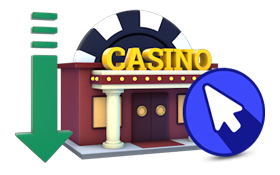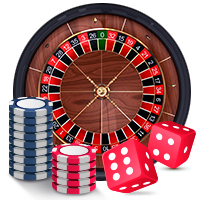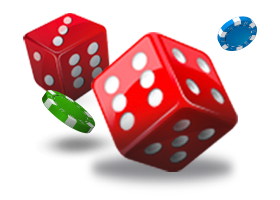
You’ve watched hours of YouTube videos and Hollywood movies of professional card sharks. You see them rake in hundreds of thousands—if not millions—of dollars from just playing one casino table game. And you think to yourself, how can I do that?
How can I go from playing cards with my friends to being a professional casino player?
The road to becoming a professional gambler is not easy, as it requires skill, knowledge, discipline, and a fair amount of luck. However, with the information below and a lot of practice and study, anyone can go from amateur to pro.
Table of Contents
Choose Your Preferred Section!
What Is a Professional Gambler?
First, let’s briefly define what we mean by “professional gambler”.
A professional gambler is an individual who earns a significant portion or the entirety of their income through gambling activities.
Unlike casual or recreational players who participate in gambling for entertainment, professionals approach gambling as a serious business and employ strategies, skills, and knowledge to gain an edge and achieve consistent profits.
Professional gamblers may engage in various forms of betting, such as poker, sports betting, blackjack, or other skill-based games.
Do Pro Gamblers Actually Exist?
The simple answer is “Yes”. The more accurate and considerably longer answer is markedly more complicated and convoluted.
It’s impossible to give an accurate count of how many professional gamblers exist. There are no reliable statistics as to how many people are making the bulk of their income through gambling.
One study from Statista shows that approximately 26% of the world’s population has gambled, with 60% of Americans admitting to gambling in the past year.
The Global Poker Index (GPI) ranks over 450,000 online poker players, using data gathered from The Herndon Mob, which aggregates the wins/losses of over 325,000 poker tournaments worldwide.
A Pew Research study in 2022 found that 19% (around 1 in 5) of respondents said they had placed a sports bet within the past 12 months.
But all those statistics don’t tell us anything about who is actually making money from all this gambling. Whether by nature or necessity, professional gamblers are a discreet bunch.
Professional poker players are arguably the most public of any pro gamblers, while successful sports bettors rarely even reveal their real names.
Cardsharps, card counters, and advantage players also keep low profiles and usually shun the spotlight.
How to Become a Professional Gambler
Hollywood sure makes it look glamorous – beautiful people in designer clothes sipping exotic cocktails while wagering huge sums of money, all while being surrounded by adoring groupies and fawning members of the public and press.
Yes, according to those big-budget gambling movies we’ve all seen on repeat (Casino Royale, Ocean’s Eleven, Maverick), the life of a professional gambler is one sweet deal!
They seem to spend all their time either seducing attractive members of the opposite sex or roguishly masterminding epiccapers that always end in their triumphing over the evil casino bosses.
No one ever worries about anything as mundane as paying their rent or making the payments on little Jimmy’s braces. Everyone is always beautifully dressed, perfectly coiffed, oversexed, and overpaid.
With PR like that, who doesn’t want to sign up to become a professional gambler?! All delivered with little to no effort beyond that of a raised eyebrow and a few smart-mouthed quips.
It’s hard to resist such a siren song of luscious rewards with seemingly little to no effort, and after watching enough of those films, becoming a professional gambler seems to be the ultimate career choice!
So how does someone go from being an amateur to a pro?
Mastering gambling is a complex and subjective concept as it encompasses a wide range of activities, each with its own set of rules, strategies, and elements of chance.
But putting all that practicality aside, let’s indulge in a bit of fantastical daydreaming and explore the steps to becoming a professional gambler.
Specialize in a Game

Your first step in your journey to becoming a professional gambler is to identify your specialization. Recognizing your natural inclinations will make it easier to pinpoint which game you should focus on.
Be honest with yourself about your inherent skills and flaws—if you’re not naturally patient, poker is not for you!
Games like poker or blackjack, which involve skill and strategy, may take a longer time to master compared to purely luck-based games like baccarat.
It is common knowledge that Banker bets win more than Player bets, yet many gamblers don’t want to pay the 5% commission that comes with that win.
That is why no-commission baccarat games are so popular with professional gamblers.
Skill-based games require a deep understanding of the rules and strategies and often involve continuous learning.
Mastery in one type of gambling doesn’t necessarily translate to mastery in all forms. If you’re interested in mastering multiple types of gambling activities (e.g., poker, sports betting, casino games), it may take more time.
Some players choose to specialize in a particular variant of poker, such as Texas Hold’em, Omaha, or Stud. Specializing can deepen your understanding of the nuances of a specific game but may require additional time.
Learn to Control Your Emotions

Developing emotional control is essential for mastering gambling.
Handling wins and losses with composure, avoiding tilt (emotional reactions to losses), and maintaining a disciplined approach are crucial skills that may take time to develop.
Professional gamblers must remain calm under pressure. Emotional decisions can lead to poor choices and significant losses.
Set a Budget

Before you start playing, set a budget and stick to it.
Budgeting at the casino is deciding the amount of money you’re willing to lose.
It is essential to protect yourself from the temptation of chasing losses, which can later lead to financial distress. At the end of the day, gambling should always be viewed as entertainment, not a source of income.
Good budgeting ensures you can enjoy the thrills and entertainment value of gambling without compromising your financial stability.
Manage Your Bankroll Efficiently

Mastery in gambling often includes the ability to manage your bankroll effectively and understand when to bet and when to walk away. This is a skill that develops over time through experience.
Closely related to the step above, it is vitally important to budget not just gambling money but also money that pays rent, utilities, and food.
Losing streaks seem to happen right when rent is due, which is why emotional control goes hand-in-hand with bankroll management.
Professional gamblers need a significant bankroll to withstand both winning and losing streaks. Building a substantial bankroll within a short time frame can be risky and may not be sustainable.
Poker players are often advised to have a minimum of $50,000 USD bankroll to begin with, so you’ll want to start sucking up to that wealthy older relative ASAP.
Understand the Role of Luck

Lady Luck is a fickle mistress who answers to no one.
No matter how skilled you are, if you’re on a losing streak and start chasing your losses because rent is due, all you will accomplish is to increase your losses.
Succumbing to excessive stress and going on tilt is the last thing a pro should do.
A true professional understands that it’s called “gambling” for a reason; if the element of luck didn’t come into it, it would be called “guaranteeing”.
If you think you’re always going to win, Lady Luck may quickly crush those dreams. For example, just because you know the count doesn’t mean you’ll know what the next card is going to be.
Keep this in mind and build up your savings for days when rent is due, but you’re on a losing streak.
Accepting the unpredictability of these games is crucial for a healthy mindset and can help you maintain a balanced approach to gambling.
Winning and losing are both parts of casino games.
Gamble Responsibly

While the idea of turning professional quickly is appealing, it’s important to approach gambling with caution.
Most professional gamblers have honed their skills over an extended period of time. Rushing the process can increase the likelihood of financial losses.
If you’re interested in pursuing professional gambling, it’s advisable to start as a serious hobbyist, gradually gaining experience and refining your skills over time.
Be realistic about the challenges involved. Gambling always implicates an element of risk, and there are no guarantees of success.
No matter what Hollywood tells you, responsible gambling practices are crucial, regardless of your skill level.
Professional gamblers set limits on both wins and losses because responsible gambling is knowing your limits and when to stop.
Remember, the primary goal of gambling is entertainment, not making money.
If you would like more information and education about problem gambling, including its signs and symptoms, call 1-800-GAMBLER
Practice, Practice, and Then Practice Some More

Mastery of your chosen game requires a substantial amount of hands-on experience.
Regularly playing in different situations against various opponents and adapting strategies accordingly is crucial. This phase can take several months or even years.
The more you engage in gambling activities, the more experience you gain.
Regular practice, combined with reflective learning from wins and losses, contributes to skill development.
Hundreds of hours of play in either live casino settings or online simulations are crucial for building confidence and familiarity with the game.
Commit to Continuous Learning and Networking

Sharpen your skills through practice, continuous learning, and networking. This may involve studying game strategies, reading books, attending workshops, and engaging with experienced players.
Regular interaction with live or simulated games is the only way you can keep current on the ever-changing ways casinos try to claw back already slim margins.
Also, building a network within the gambling community can provide valuable insights, tips, and support.
However, developing these connections may take time. Connect with other professional gamblers, join forums, and attend events.
One way to get this continued learning experience and network without wasting thousands of dollars is to work as a casino dealer, where you are around these games on a daily basis.
As a casino dealer, you can see how other people are playing and what works and what doesn’t, all while getting paid for the experience.
Learn Legal and Regulatory Requirements

Understanding and navigating the legal landscape of gambling in the US is essential.
Professional gambling may be subject to specific regulations, and compliance is crucial to avoid legal issues.
Know exactly what the professional gambler tax rules and laws are for your chosen game in your chosen area. Find a good gaming lawyer and keep them on retainer.
Advantage players, especially, must know the laws inside and out.
Maintain detailed records of your wins and losses. This helps with analyzing your performance, identifying patterns, and also ensures compliance with tax regulations.
Many pro players have beaten the casino, only to find themselves beaten by the IRS!
Practice Advantage Play

Casinos often offer various bonuses and promotions to attract and retain players.
These offers can include welcome bonuses, free spins, and loyalty rewards and can give you a leg up by providing extra value and extended playtime.
However, there are often wagering requirements and other restrictions, so it’s crucial to read the terms and conditions carefully before accepting.
Advantage gambling, or advantage play, refers to legal methods used to gain an edge while gambling.
It usually refers to house-banked casino games but can also refer to games played against other players, such as poker.
This is not the same as cheating. Advantage play exploits innate characteristics of a particular game to give the player an edge relative to the house or other players.
Advantage Players (AP) use bonuses and promotions given to players to increase their edge, making it easier to win big.
The hardest part about this practice is finding these bonuses and promotions to begin with.
Be advised: while it is not illegal, advantage play may result in players being banned by certain casinos, so play at your own risk.
House Edge: The Turning Point to Professional Gambling
As you can see, transitioning from an amateur gambler to a professional is an ambitious goal and comes with various challenges.
Below, we look at a key component for becoming a pro casino player, which you should take into account when making this particular career change.
House Edge

The house edge is the money the casino is expected to make from the player’s wager, typically expressed as a percentage.
For example, the house edge on a double zero roulette game is 5.26%. If a player bets $100 per spin, the casino is expected to profit $5.26.
If the dealer has 60 spins per hour, the casino could make $315.60 from one player, so you can see how quickly profits add up.
Players want to find games with as close to a 0% house edge as possible. In blackjack, the average house edge is 0.5%, depending on how many decks are used and the rules involved.
However, it is possible to bring the edge down to Even or 0% if Edward Thorp’s basic strategy is used, which tells players what actions to take during specific situations.
Not all games are created equal regarding a player’s chance of winning in the casino.
As mentioned earlier, some games offer a better house edge than others, and familiarizing yourself with house edges and the rules of the games will help you pick better games and increase your likelihood of winning.
Roulette House Edge

When selecting a roulette table to play, look for how many zeroes it offers.
A triple zero (000) table offers the worst house edge for players at 7.69%, while the far more common double zero (00) table offers a 5.26% edge.
The best roulette table for players is a single zero (0) table with a house edge of 2.7%.
Single zero games that offer only the La Partage Principle have an even lower house edge at 1.35%.
The La Partage Principle states that if zero hits, then half of all even money bets will be given back to the players.
However, try to avoid tables that also have the En Prison rule, as half of all even money bets must stay and play on the table for the next spin or two.
This increases the casino’s house edge, which varies based on the specifics of the rule.
Craps House Edge

With a 0% house edge, craps offers one of the best bets in a casino, which is why casinos limit how much a player can spend on a wager.
Normal odds to see on craps is 3x4x5x, which means if the point is a 4 or 10, then the player can take odds that are 3 times their flat bet on the pass line.
If the point is a 5 or 9, then the player can take 4 times odds, and if the point is a 6 or 8, then the player can take 5 times odds.
The more odds the players can take, the better. Some casinos offer 10x odds, 20x odds, and even 100x odds.
If the player likes betting on the field, check the 12 payout because a triple, or 3:1, has the lower house edge at 2.78%. If a 12 pays double, or 2:1, the house edge is 5.56%.
The Don’t Pass Line has a better house edge at 1.36% than the Pass Line at 1.41%.
Blackjack House Edge

Blackjack house edge varies widely based on the rules involved, how many decks are used, how much a blackjack pays, and more.
Each game comes with its set of rules which determine what the house edge will be. Studying these rules can significantly improve your chances of success.
For example, a game that pays 3:2 on their blackjack has a lower house edge and is better for the player than a table that pays 6:5.
Same with certain rules; it’s better for the player if the dealer stays on a soft 17 than hitting it.
Blackjack can be played with any number of decks, but the fewer decks used, the better the house edge for the player and the easier it is to count cards.
Unfortunately, finding a blackjack game at a casino with just a single deck of cards is challenging, as they are usually only in high-limit areas.
The highest house edge a player can encounter on blackjack is around 15%, which occurs when they make all the wrong moves. By mimicking the dealer and following house rules, the edge drops down to 5.5%.
On average, casual players play at a 1.4% house edge, and you can further lower your edge by following the basic strategy created by Ed Thorp in his book Beat the Dealer.
The basic strategy card, often found in casino gift shops or online, can be used at the table and help tilt the odds in your favor.
Understanding blackjack basic strategy—when to hit, stand, double down, or split—can significantly reduce the house edge.
If you’re looking to take things a step further, many professional blackjack players use advanced techniques like counting cards to tilt the odds even more in their favor.
This method greatly increases your chances of winning because it provides three critical pieces of information:
- When to bet more
- When to deviate from basic strategy
- When to take insurance
Check out our guide on card counting for a detailed breakdown of how it’s done.
Ready to Level Up Your Game?
It all comes back to the first key components of becoming a professional player: learning a game, setting a budget, and managing yourself.
Pros often come out ahead because they are disciplined, practice often, and take care of their wallet.
As you scale your play from amateur to professional, remember gambling is supposed to be fun and entertaining.
Chase the thrill of the game, not the fear of the loss!




